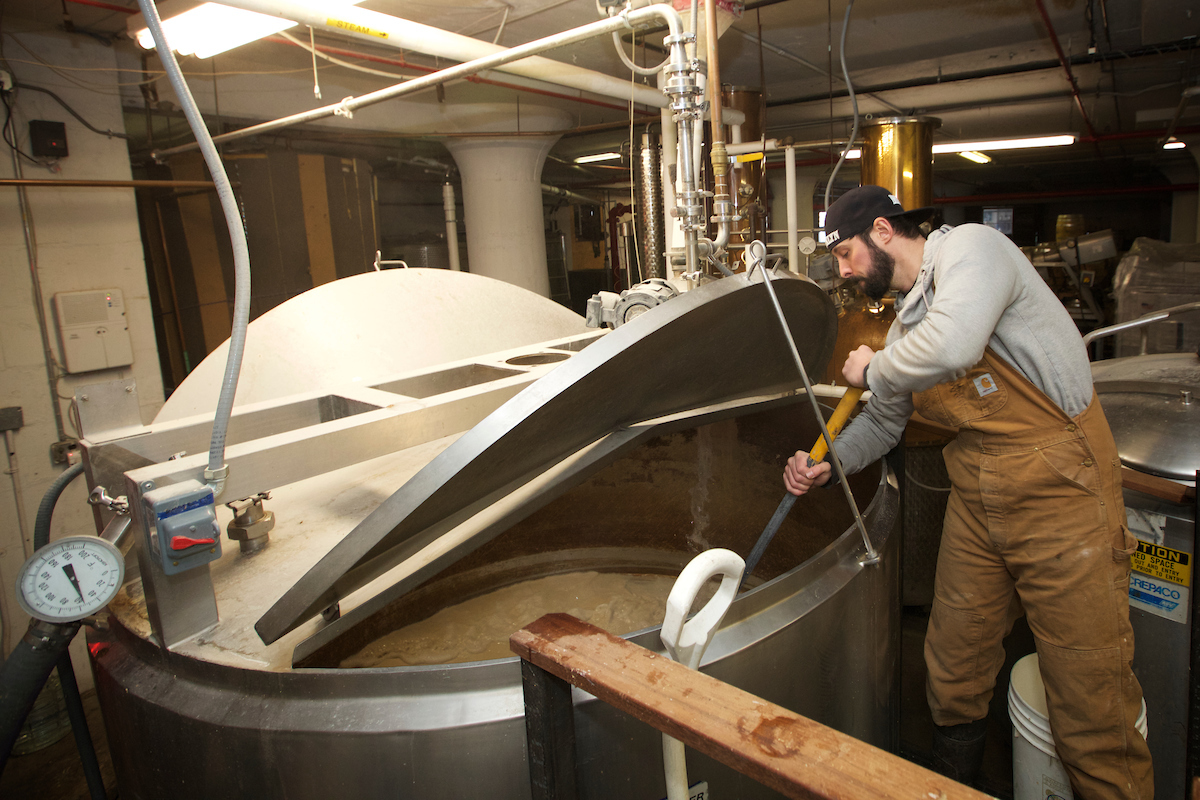 Distiller Brandon Hill stirs the mash (Clay Williams photo)
Distiller Brandon Hill stirs the mash (Clay Williams photo)
Jan 24, 2019
By Jennifer L. Blanck
Special to the USA Rice Daily
BROOKLYN, NY -- Although not indigenous to Korea, soju, meaning “burnt liquor,” is now the country’s national drink. It is colorless and more neutral like vodka, but has less of a burn. Mongolian invaders brought soju’s ancestor from Persia to Korea in the 13th century where the liquor was made with rice, because of its abundance.
Slow to catch on in the United States, soju is now becoming more known and gaining traction. Tokki Soju, the first U.S. distillery of soju, started producing the traditional rice-based liquor here in February 2016. Founder and distiller Brandon Hill makes soju as true to the old Korean style as possible using recipes from the Chosŏn dynasty (1392-1910) that he obtained while in Korea. “With the exception of electricity, you could replicate Tokki Soju 500 years ago,” said Hill.
Tokki Soju is made with just three ingredients: rice, a traditional wheat-based starter culture called nuruk, and water. In keeping with tradition, Hill uses chapssal, which is the Korean name for sticky rice. He gets his organic sticky rice from The Sun Valley Rice Company in Arbuckle, California.
Hill uses short grain sticky rice because it’s high in starch and sweet in flavor. That natural sweetness translates to the distillate, so he doesn’t have to add any sugar. He currently uses 4,000 pounds of rice a month, and that number is growing as Tokki Soju is sold in California, Connecticut, New Jersey, and New York, with plans to expand.
“I’ll only use the finest ingredients, so you know exactly what you’re putting in your body,” Hill said. “None of the high quality soju in Korea gets exported, so most of what’s on U.S. shelves is chemicals and sugar. I didn’t want to make the stuff you get hammered on in a karaoke booth and have an awful headache the next day.”
When Hill started, there was hardly any craft soju movement in the United States. “The soju story hasn’t been told,” he said. Now that is changing and Hill hopes Tokki Soju will be a key part of that story, as he works to keep this Korean tradition alive with U.S. rice.